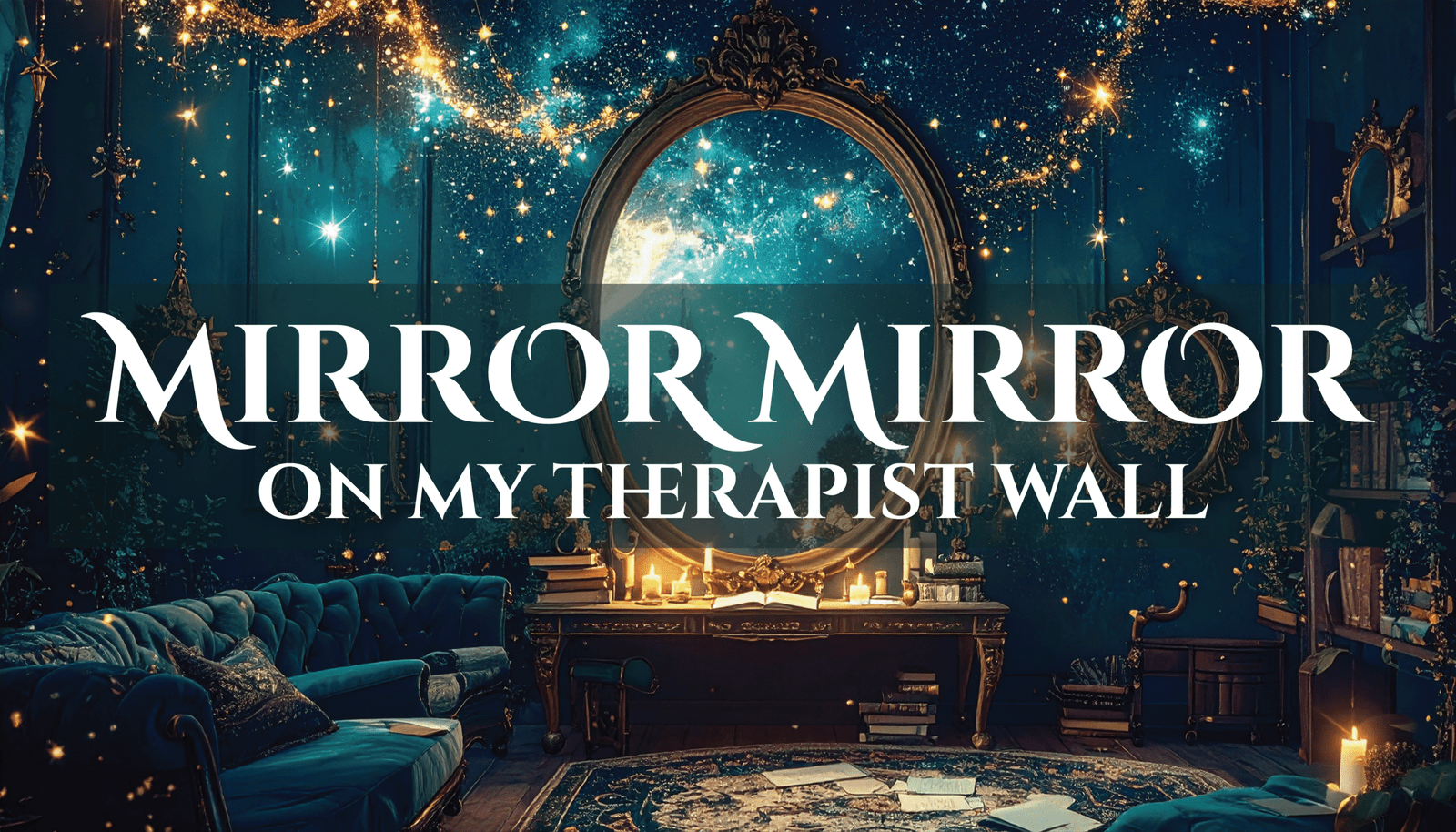
Mirror Mirror On My Therapist Wall: Abigail and Amelia
Share the Post: Mental Health Lessons from Abigail and Amelia: The Unsung Sisters of Self-Worth in The Aristocats When people

Astropsychology: Understanding Yourself Through the Cosmic Mirror
Have you ever wondered why you react the way you do in relationships, why certain fears keep showing up, or why some life patterns seem to repeat no matter how much work you’ve done on yourself? What if the answers weren’t just buried in your past—but also written in the sky at the moment you were born?
Welcome to Astropsychology—a powerful fusion of modern depth psychology and ancient astrology, developed and refined by psychologist and astrologer Glenn Perry. This framework offers a compassionate and symbolic way to understand your inner world, not as broken or flawed, but as a meaningful, evolving story.
Let’s explore what Astropsychology is, how it can support the therapeutic process, and how it can reduce shame and guilt by helping you understand the deeper purpose behind your patterns.
What Is Astropsychology?
Astropsychology is the integration of astrology and depth psychology, with the goal of using the birth chart as a symbolic map of the psyche. According to Glenn Perry, the natal chart doesn’t determine your fate—it reveals your psychological structure and the developmental challenges and potentials you carry through life.
Rather than treating the planets and signs as fixed traits, Astropsychology sees them as dynamic archetypes—unfolding through experience, shaped by early life and continually evolving. Your birth chart, from this view, is like a mythic script. It outlines the themes, characters, and conflicts of your personal story, but how you live it is always up to you.
In Perry’s words, the chart represents the “soul’s intention” for growth—what you came here to learn, express, and integrate. Each planetary placement can symbolize both a strength and a psychological task, inviting you to grow toward wholeness.
How Can Astropsychology Be Helpful in Psychotherapy?
Traditional talk therapy helps clients explore their thoughts, emotions, and behaviors through a linear, language-based process. Astropsychology adds another layer—a symbolic mirror that can help clients recognize patterns more quickly and compassionately.
Here’s how it can enhance psychotherapy:
1) Provides a Personalized Map of the Psyche
The natal chart gives the therapist and client a framework for understanding personality, motivations, and defense mechanisms. For example, someone with a strong Saturn influence may struggle with self-criticism and perfectionism—not because they’re “flawed,” but because they’re learning about self-worth and mastery through effort and responsibility.
2) Reveals Developmental Themes
Astropsychology emphasizes that chart dynamics are not static traits but developmental potentials. It shows not only what you’re experiencing but why—what deeper soul lesson is being worked through. This helps clients see their struggles as part of a meaningful journey, not random suffering.
3) Accelerates Insight and Self-Acceptance
Sometimes therapy can take years to uncover core wounds. Astrology, when used responsibly and skillfully, can help highlight unconscious beliefs and core conflicts early on—allowing the therapeutic work to go deeper, faster.
4) Supports the Integration of Opposites
Every birth chart contains inner tensions—opposing signs or planetary aspects that reflect inner conflict. Rather than choosing one side (e.g., independence vs. connection), Astropsychology helps clients integrate opposites into a fuller, more balanced self.
What Insight Can I Gain From Astropsychology?
The insights gained from Astropsychology are both practical and profound. By looking at your chart symbolically, you might discover:
For instance, if you have Mars in Pisces, you may struggle with assertiveness and feel confused about your direction. But from an astropsychological view, you’re learning to act with compassion, flow, and spiritual alignment. Your challenge is your path.
How Can Astropsychology Help Me Reduce Shame and Guilt?
One of the most beautiful gifts of Astropsychology is its non-pathologizing lens. Instead of labeling you as disordered, broken, or wrong, it sees every part of you—even the painful, conflicted parts—as symbolic expressions of deeper soul work.
1) Reframing “Flaws” as Growth Opportunities
Astropsychology helps reduce shame by showing that what you think is “wrong” with you is simply part of your chart’s curriculum. That struggle with self-worth? Maybe it’s your Venus-Saturn square helping you learn to love yourself through effort and maturity. That impulsive behavior you regret? It could be your Aries Moon pushing you to explore healthy self-assertion.
Instead of self-blame, the chart offers compassionate insight. Your behaviors make sense in light of your chart—and knowing that opens the door to healing.
2) Understanding Zodiac Strengths and Challenges
Each zodiac sign contains both gifts and pitfalls. Astropsychology invites you to own your sign’s strengths while compassionately working through the challenges. This helps soften the harsh self-judgments that often come from comparing ourselves to others.
Here are a few examples:
This kind of insight turns shame into self-understanding and guilt into gentle accountability.
3) Connecting With Purpose
When you understand your chart as a symbolic story of your soul’s journey, your struggles feel less like punishments and more like purposeful challenges. You’re not failing—you’re growing. This reframing is liberating, especially for clients who have carried guilt or shame for behaviors they didn’t fully understand.
Final Thoughts: Your Soul Has a Map
Astropsychology doesn’t replace therapy—it enhances it. It offers language for the invisible, a lens for compassion, and a pathway for transformation. Glenn Perry’s work reminds us that your chart is not a diagnosis, but a blueprint of becoming—a poetic, symbolic guide to the person you’re here to grow into. If you’re feeling stuck, ashamed, or unsure of who you are, astropsychology can offer a mirror that reflects not just your wounds, but your worth. Not just your patterns, but your potential. And not just your pain, but your purpose.

Share the Post: Mental Health Lessons from Abigail and Amelia: The Unsung Sisters of Self-Worth in The Aristocats When people

Share the Post: Captain Hook: The Mental Health Icon We Never Expected Let’s be honest: Captain Hook has always been